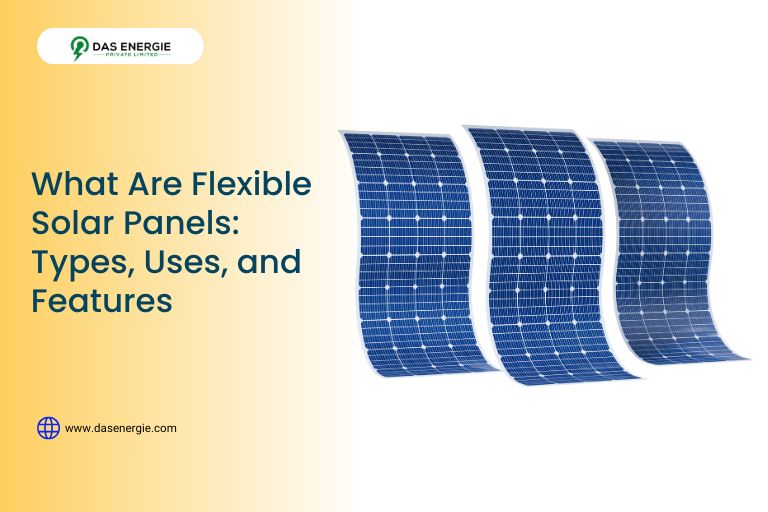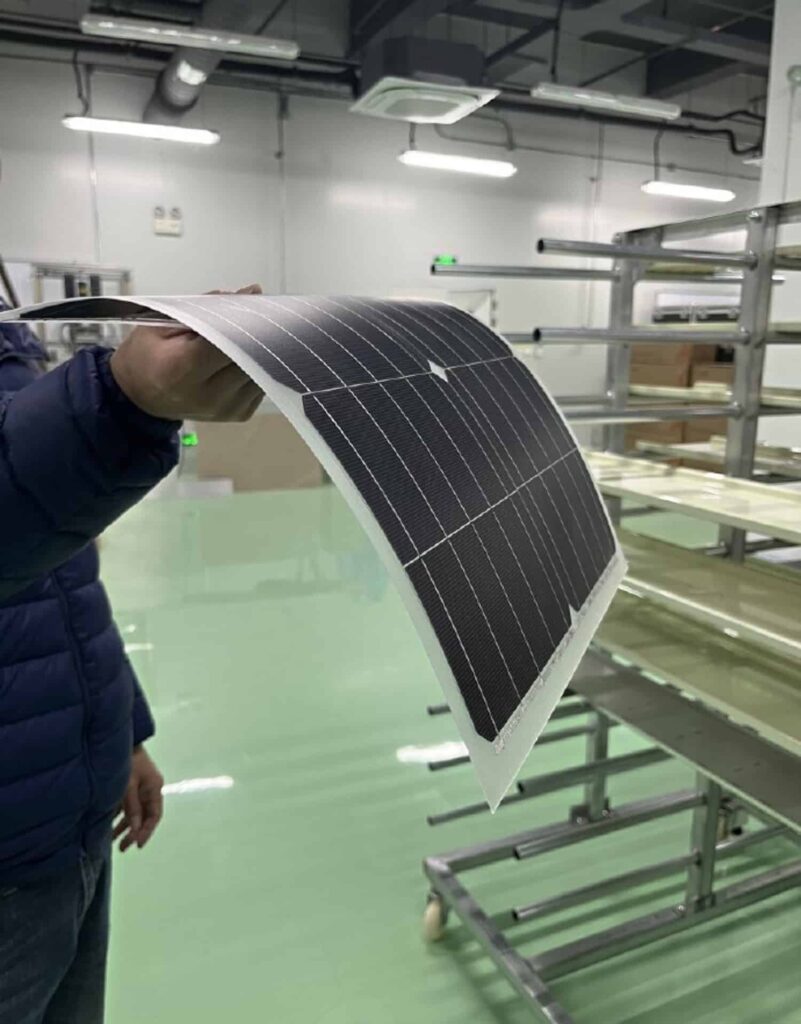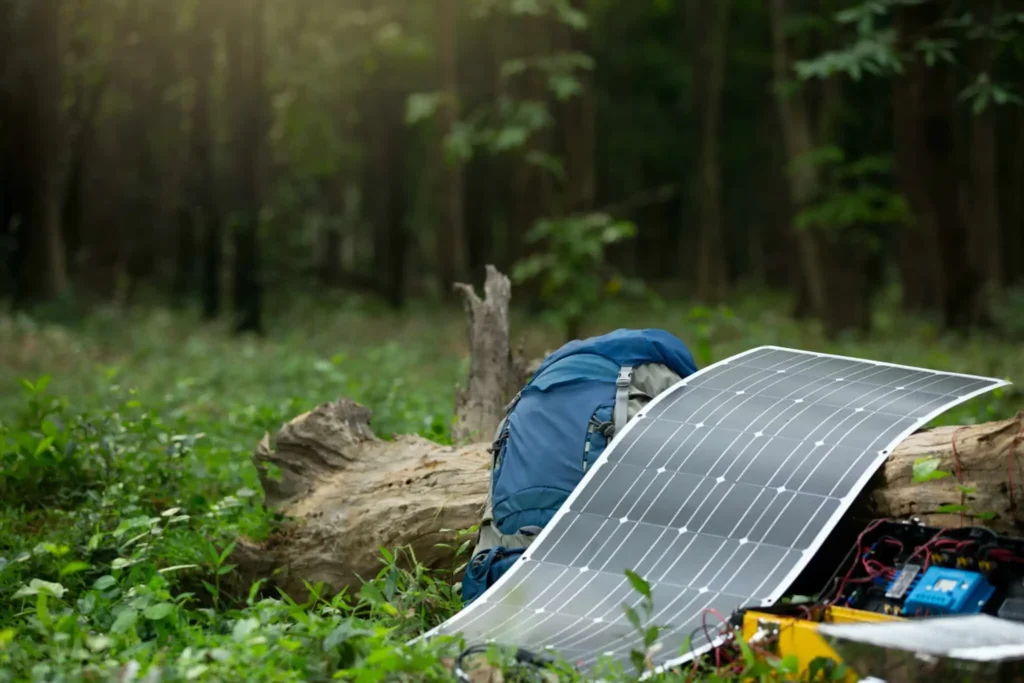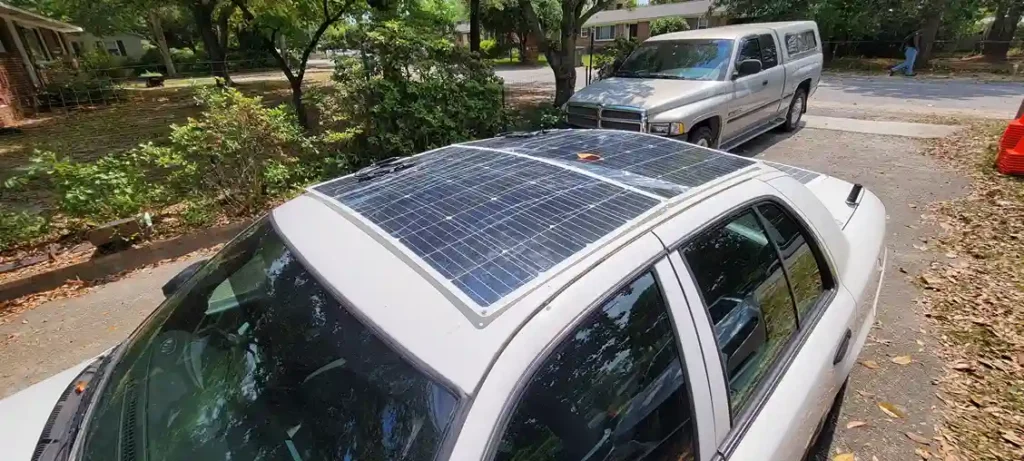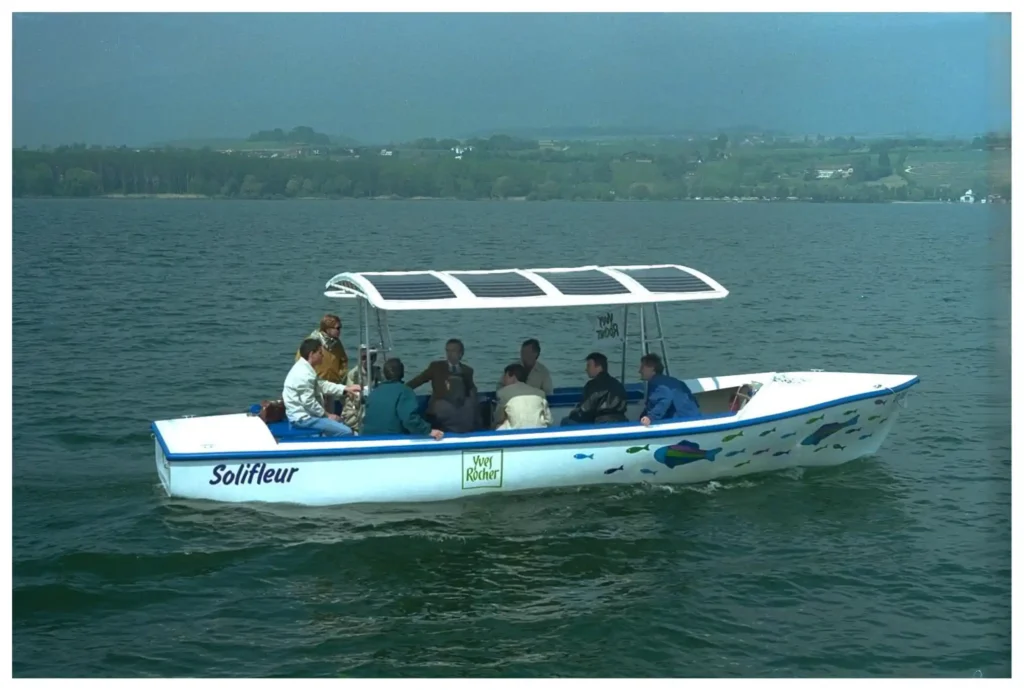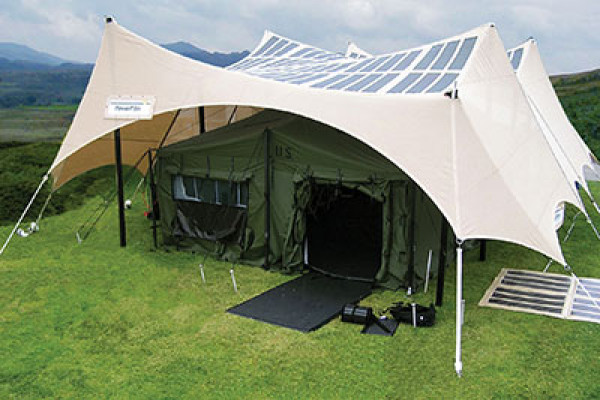Flexible Solar Panels – Type, Advantages and Disadvantages
Flexible solar panels are much more adaptable and lightweight than traditional solar panels. They can be used on windows, roofs of cars, boats, and houses, or on any outdoor equipment. This can even be used for generating power for spacecraft. Their versatility makes them a powerful alternative to traditional solar panels.
Flexible solar panels are lightweight and have a low thickness, making them easier to carry. A 100-watt flexible solar panel has a thickness of around 2.5-4.0 cm and weighs around 2-5 kg. You can bend these panels nearly 10-30°.
Table of Contents
ToggleWhat Are Flexible Solar Panels?
Flexible solar panels are a type of thin film solar panel. Its flexibility depends on the type of material which is used to make the panels.
It is important to note that not all thin film solar panels are necessarily flexible. The flexibility is a by-product of the thinness. Over the decades, several materials have been used to manufacture flexible solar panels.
Why Flexible Solar Panels are ‘Flexible’?
Flexible solar panels are made of multiple layers of flexible materials. Here’s a representation of how a perovskite thin film solar cell is designed:
Source: Ossila
The big challenge in making them flexible lies in finding suitable electrodes and substrates. Here’s a brief description of each:
Substrate: PET (polyethylene terephthalate) and PI (polyimide) plastics are the most common substrates in flexible solar sheets. Thin metal foils, ultra-thin glass and fabrics are alternatives to plastic. The requirements of the solar cell decide which substrate is the best.
Electrode: Indium tin oxide (ITO) is the most commonly used electrode in flexible solar panels. Researchers at MIT are exploring using graphene as an electrode in solar cells. You can go through the article of MIT on Transparent, flexible solar cells.
Types of Flexible Solar Panels
Here are the most common types of solar power flexible panels:
1. Amorphous Silicon
To make amorphous silicon solar panels, non-crystalline silicon is deposited on the substrates such as glass and plastic. Over the years, improvement in efficiency has made them suitable for a variety of applications, including building integrated photovoltaics (BIPV).
2. Cadmium Telluride
Cadmium telluride solar panels are the most common types of thin film solar panels. They are the 2nd most common type of solar panels after crystalline silicon solar panels. It has a p-doped cadmium telluride layer and an n-doped cadmium sulfide layer. Cadmium telluride cells have an efficiency of over 19%.
3. Copper Indium Gallium Selenide
These solar panels have a copper gallium indium diselenide (CIGS) substrate deposited on a substrate such as glass or plastic. Their efficiency is between 12% and 14%. The biggest disadvantage of CIGS solar panels is their high cost.
4. Organic Photovoltaics
Organic solar cells use carbon-based materials as photovoltaics for generating electricity. They have very high flexibility and the cost of manufacturing them is quite low. But the major drawback is their very low lifespan and efficiency.
5. Gallium Arsenide
Gallium arsenide solar panels are costly to manufacture and their usage is confined to spacecraft and satellites. Their efficiency is nearly 30%.
How to Install Flexible Solar Panel?
Here are the steps to install flexible solar panels:
Step 1: Unpack the solar panel and lay it flat with its rear facing you.
Step 2: Use a marker to make marks at regular intervals.
Step 3: Apply silicone-based adhesive along the marks.
Step 4: Reinforce the attachment along the edges by using adhesive.
Avoid stepping on the panel and putting any heavy objects on it.
Here is a video illustrating flexible solar panel installation:
Advantages of Flexible Solar Panels
The bendable solar panels have the following advantages:
- Mounting
The flexible solar panel comes with multiple mounting options compared to conventional ones. You do not need a conventional mounting structure on a concrete surface or pedestal. Rather, you have the flexibility to install this panel on any surface like the roofs of boats, cars, and your house. You have to use a silicone adhesive to attach this panel to these surfaces. Here are some of the silicone structural adhesives you can use.
- Portability
Flexible solar panels are portable due to being lightweight. Thus, they can be used for outdoor activities such as boating, camping, and hiking.
- Easy to Install
Flexible solar panels are simpler and easier to install compared to conventional solar panels. There is no requirement for expertise or training to install them.
Disadvantages of Flexible Solar Panels
Besides the advantages, flexible solar photovoltaic panels have a few disadvantages as well:
- Low Efficiency
They have lower efficiency (10% to 15%) compared to conventional solar panels (20%-22%). As a result, this type of solar panel generates less electricity, approximately 50 to 300 Watts per panel, depending on the capacity. For this reason, flexible solar panels are not suitable for home solar installation.
Apart from flexible solar panels, if you are interested in more types of solar panels, you can read our blog.
- Durability
Flexible solar panels are made from thin cells and are less durable compared to conventional solar panels. Thus, they have a lower life span. Flexible solar PV modules have a performance warranty of approximately 15 years compared to a performance warranty of 25-30 years for conventional mono-PERC and TOPCon solar panels.
Things to Remember While Purchasing Flexible Solar Panels
Here are the things that you need to remember while buying flexible solar panels:
- Power Output
The power output of flexible solar panels is significantly lower than that of standard mono-PERC or TOPCon solar panels. While flexible solar panels are good for outdoor activities, they can’t meet your household demands.
- Efficiency
The efficiency of a solar panel refers to its ability to absorb sunlight and convert it into electricity. A higher efficiency ensures higher solar electricity generation.
- Bendability
Flexible solar sheets have a bending capability of up to 30 degrees. However, specially designed flexible solar panels can bend up to 248 degrees. Based on your needs, you can choose solar panels with different bending angles.
- Warranty
Solar power flexible panels usually have a warranty of around 5 years. Ensure you choose solar panels with at least a 5-year product warranty and a 15-year performance warranty for optimum power generation and reliability. While a solar panel with a lower warranty period may be cheaper, it could be less durable.
Uses of Flexible Solar Panels
Flexible solar photovoltaic panels have multiple uses due to their bending ability. Here are the uses of this type of solar panel for you:
- On Curved Surfaces
As solar power flexible panels are bendable, they are suitable for use on curved surfaces. You can use this type of solar panel on car roofs, recreational vehicles (RVs) and other curved surfaces. Ensure you choose solar panels with an appropriate bending angle for a seamless experience.
You can use flexible photovoltaic panels in boats to generate electricity. Along with it, make sure to add a battery to store the electricity.
- While Camping and Hiking
If you are worried about your phone’s battery during your camping trip, you can take a flexible photovoltaic panel with you. You can simply affix it to your backpack and let it charge your devices while you are camping and hiking.
Best Flexible Solar Panels in India
Here are some of the best flexible solar panels in India:
- Waaree 500 W
- 15 Years Performance Warranty
- 144 M10 Cells
- Panel dimension of 23L x 1150W x 2380H Millimeters
- 10.5 kilograms of weight
- Waaree 125 W
- Product Dimensions is 179.8L x 41.8W x 0.3H centimeters
- Suited for residential, commercial, and industrial use
- Efficiency of 16.67%
- Can tolerate strong winds, extreme temperatures
- Mono-PERC technology ensures good performance in low-light situations
- Low weight of 2.8 kg
- Renogy 100 W
- Dimensions of 109.2L x 58.2W x 0.3H centimeters
- Average production of 500 Wh daily
- Bendable up to 240 degrees
- All-black glare-free appearance
- Mono-PERC half-cut cells for improved efficiency
- Can withstand up to 5400 Pa of heavy snow load and up to 2400 Pa of high wind
- Topunive 100 W
- Product dimensions of 101L x 54W x 2H centimeters
- Suitable for usage on cars, boats, trucks, yachts and rooftops
- Lightweight of 2 kg
- Easy to install
- 9 busbar solar cells for higher efficiency
- Waterproof and dustproof
- Solar cell efficiency is 23.0%
- BougeRV 200 W
- Product dimension is 82.2 inch x 26 inch x 0.06 inch
- It has a weight of 3.8 KG
- Can work for 25 years at least
- 360-degree flexibility
- Waterproof junction box and solar connectors
- CIGS technology ensures higher efficiency than monocrystalline panels
- Works well in a wet environment
The bending ability of flexible solar panels makes them valuable in various scenarios. Further, these solar panels are less expensive compared to conventional solar panels. However, the lower productivity of flexible solar panels makes them unsuitable for home solar system installation. Installing a traditional solar system would be better for powering your home.
Frequently Asked Questions
The price of flexible solar panels in India is between Rs. 65 to Rs. 80 per watt.
Flexibility is the distinguishing feature of a flexible solar panel. A flexible solar panel is thin while a conventional solar panel is thick and rigid.
Waaree and Renogy are famous flexible photovoltaic panel manufacturers.

